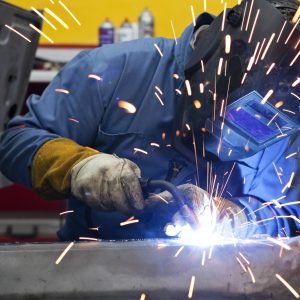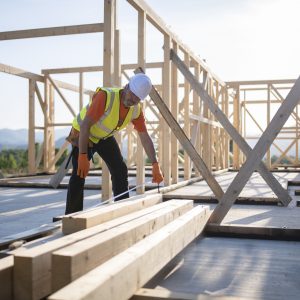Do you need a licence to work in construction in Victoria?
Registering with the VBA is mandatory under the following circumstances:
- Contract worth: You must register with the VBA if you handle a contract worth more than $10,000 in value.
- Specific work: Regardless of contract value, registration is required if you engage in reblocking, restumping, demolishing, or removing a home.
However, there are certain jobs that do not require VBA registration if they involve only one of the following tasks:
- Plastering
- Tiling (wall and floor)
- Electrical work
- Glazing
- Installing floor coverings
- Insulating
- Painting
- Plumbing, gas-fitting, and draining
- Attaching external fixtures (awnings, security screens, insect screens, and balustrades)
- Erecting a chain wire fence around a tennis court
- Erecting a mast, pole, antenna, aerial, or similar structure.
Please note that if you combine multiple skills, such as plastering and painting, to complete a job, VBA registration is required.
To register with the VBA, you must possess the necessary qualifications, knowledge, and expertise in your respective building categories. You are required to carry domestic building insurance (formerly known as builder’s warranty insurance). It’s important to note that the VBA registers individual builders, rather than businesses or companies.
Please note, Skills Certified isn’t a licence provider. Please contact your local state licensing authorities for up-to-date information on licensing and permit requirements in Victoria.
What qualifications do I need to start a construction business in Victoria?
If you’re planning to launch a construction business in Victoria, it’s not just a matter of hanging your hard hat on the nail—you’ll need the right qualifications, licensing, and legal groundwork to get off on solid footing.
To qualify, you’ll need a blend of formal qualifications and experience—typically a Diploma or Certificate IV in Building and Construction – CPC40120—plus at least three years of full-time experience in the specific category you’re applying for.
Beyond building qualifications, you’ll need to structure your business correctly—whether as a sole trader, company, or partnership—and ensure compliance with laws like Work Health & Safety (WHS) and Australian Consumer Law. You’ll also need to be familiar with the National Construction Code (NCC) and have competency in risk management and contract law.
WHS compliance includes obtaining a White Card, which is essential for anyone working on a construction site in Australia.
How to Become a Registered Builder in Victoria
- Minimum experience: You must typically have a minimum of around 3 years of full-time experience in the specific building registration category you are applying for (commercial, domestic, etc.).
- Application process: Complete an application form, providing proof of experience and other necessary documentation.
- Evaluation: Undergo a written test and, in some cases, an interview.
- Building codes knowledge: Possess a thorough understanding of national building codes.
For more detailed information and a comprehensive list of registrations, visit the Victorian Builders Authority website.
Complying with the necessary licensing and registration requirements is vital to operate legally and successfully in the construction industry in Victoria. To ensure you have the correct licences and permits for your construction business, it’s recommended to refer to the VBA’s website on section for further guidance.
Types of builder licences in Victoria
In Victoria, a builder’s licence is referred to as builder’s registration. There are several types of builder registrations, each with its own limitations on work sites and projects. The common registrations include:
- Domestic Builder (Limited)
- Domestic Builder (Unlimited)
- Domestic Builder (Manager)
- Commercial Builder (Limited)
- Commercial Builder (Unlimited).
Fast-tracking with Recognition of Prior Learning (RPL)
Recognition of Prior Learning (RPL) is all about turning your existing skills, knowledge, and experience into a nationally recognised qualification. If you’ve worked in building and construction for years—sometimes with more practical know-how than a new graduate—you may already meet the qualification requirements without sitting in a classroom.
Here’s how the process works with Skills Certified:
- Free consultation – We’ll discuss your background to confirm your eligibility and match your experience to the requirements of your desired building qualification.
- Portfolio of evidence – With our guidance, you’ll gather proof of your skills such as payslips, work references, current employment contracts, samples of your work, including sketches, plans, quotations, tender documents and invoices, or past training documents.
- Assessment by an RTO – One of our partner Registered Training Organisations (RTOs) will assess your portfolio to confirm your competence. If any gaps are identified, targeted upskilling may be offered—so you don’t repeat training unnecessarily.
- Receive your qualification – Once approved, you’ll be awarded your RPL Certificate, the same nationally recognised qualification you’d earn through full study.
The advantages are clear: you’ll cut down on costs and study time, skip over skills you’ve already mastered, and boost your career opportunities. Gaining a construction qualification through RPL can also assist with licence applications, immigration requirements, and further education—without needing to step away from your job.
















